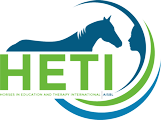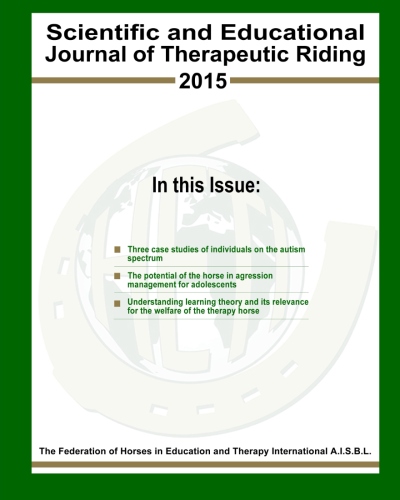Role of Learning Theory in Training and Handling the Therapy Horse 2015
€10.00
| Author | Elyssa B. Doner, Nina Ekholm Fry |
|---|---|
| Year | 2015 |
Practitioners who provide services with horses that involve human-horse interactions operate in a complex environment. When horses are specifically included to promote human mental health and wellbeing, it seems particularly important that the practitioner has extensive knowledge of equine ethology, including how horses learn and the principles of ethologically sound training. Therapy horses interact with clients whose main purpose is not to learn specific handling practices but to gain personal insight through their relationship and interactions with the horse. When designing sessions or overseeing client activities, practitioners need to take care to not intentionally create distressing situations for the horse. Poor preparation for work role, lack of consistent conditioning or lack of appropriate training can inadvertently create high-risk, high- stress situations for clients and horses. We propose that knowledge of learning theory, which explains how horses learn through common learning processes such as habituation and sensitization, and classical and operant (instrumental) conditioning, is central to ethical interaction with the therapy horse, effective client services, and appropriate risk management for all involved in the session.

